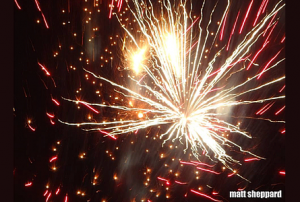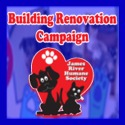 (CSi) The North Dakota Department of Emergency Management reminds residents, that summer activities often revolve around fireworks, barbecues, and campfires and it is
(CSi) The North Dakota Department of Emergency Management reminds residents, that summer activities often revolve around fireworks, barbecues, and campfires and it is
important to know the laws and techniques to keep you and your family safe this
season. Many cities do not allow fireworks within city limits. Check with local
emergency management authorities to find out what laws apply in your area. The
safest way to enjoy fireworks is through public displays conducted by professional
pyro-technicians. Fireworks can be legally sold June 27th through July 5th (NDCC
23-15-01).
Fireworks Safety
* Make sure there is no burn ban and that fireworks are legal in your
county.
* Never light fireworks indoors or near dry grass.
* Always have a bucket of water and/or a fire extinguisher nearby and
know how to operate the fire extinguisher properly.
* Do not wear loose clothing while using fireworks.
* Stand several feet away from lit fireworks.
* If a device does not go off, do not stand over it to investigate.
Instead put it out with water and dispose of it.
* Always read the directions and warning labels on fireworks.
* Supervise children around fireworks at all times.
Barbecue Safety
* Before using a grill, check the connection between the propane tank
and the fuel line.
* Make sure the venturi tubes – where the air and gas mix – are not
blocked.
* Do not overfill the propane tank.
* Do not wear loose clothing while cooking at a barbecue.
* Be careful when using lighter fluid. Do not add fluid to an already
lit fire because the flames can flashback up into the container and explode.
* Keep all matches and lighters away from children. Teach your children
to report any loose matches or lighters to an adult immediately. Supervise children
around outdoor grills.
* Dispose of hot coals properly – douse them with plenty of water, and
stir them to ensure that the fire is out. Never place them in plastic, paper or
wooden containers.
* Never grill/barbecue in enclosed areas – carbon monoxide could be
produced.
* Make sure everyone knows to stop, drop and roll in case a piece of
clothing does catch fire. Call 911 or your local emergency number if a burn warrants
serious medical attention.
* Keep grills a safe distance away from siding, deck railings, and out
from under eaves and overhanging branches.
Campfire Safety
* When camping, be familiar with the campground rules for the use and
extinguishing of campfires.
* Build campfires at least 15 feet away from tent walls, shrubs or other
materials that burn.
* Build campfires where they will not spread, away from dry grass and
leaves.
* Keep campfires small, and don’t let them get out of hand.
* Keep plenty of water and a shovel around to douse the fire when you’re
done. Stir it and douse it again with water.
* Never leave campfires unattended.
Wildfire Danger Awareness
Major causes of urban fires include:
* Electrically related structural and vehicle fires
* Incendiary-arson
* Unattended cooking fires
* Smoking materials
* Heating devices
* Fuel systems
* Sparks
* Hazardous material spills
* Spontaneous combustion
Major causes of wild land fires include:
* Lightning
* Inadequate measures for controlled burns
* Smoking
* Sparks from farm machinery and trains
Fires in areas of high fuel content, if not quickly detected and suppressed, can
rapidly flare out of control, threaten lives and cause major damage to habitat,
crops, livestock, wildlife and structural property.
For more information visit www.nd.gov/des/get/summer-fire-safety/ or
www.nd.gov/des/planning/fire-danger-awareness.












Comments are closed
Sorry, but you cannot leave a comment for this post.